Bernard Docusen: The Sweet Science
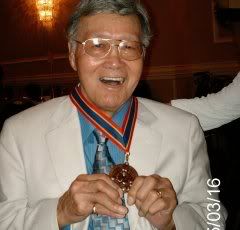 Billiards buddies, pool players, and boxing fans, here is a read on Filipino boxer Bernard Docusen. The article was first published on The Sweet Science by Bernard Fernandez. It is one very good, friends! And I kid you not!
Billiards buddies, pool players, and boxing fans, here is a read on Filipino boxer Bernard Docusen. The article was first published on The Sweet Science by Bernard Fernandez. It is one very good, friends! And I kid you not!*Article credits all go to The Sweet Science and Bernard Fernandez. Picture courtesy of Bernard Docusen’s daughter, Patricia Docusen Maddox.
Boxing Bonds Fathers and Sons
My religious beliefs hold that certain matters must be taken on faith. Faith, I was told as a child in catechism class, can move mountains. You must be able to believe what you cannot always see.
What faith doesn’t always sway, I found out years later, are nominating committees for various boxing Halls of Fame.
My life-long love of boxing was conferred upon me, like an early gift, by my late father, Bernard “Jack” Fernandez Sr., a former fighter who had many, many amateur bouts but only two as a pro, both in 1944 when his destroyer escort, in home port from the war against the Japanese in the Pacific theater, was undergoing repairs in San Diego. Fighting on Archie Moore undercards in each instance, Dad went 1-0-1. A framed poster publicizing his Aug. 18 six-rounder with Jimmy Hatmaker – Archie Moore’s name, of course, is much more prominently displayed for the Mongoose’s main event with Jimmie Hayden – is framed and hangs in my office at home. It has always been my proudest possession, more of a family heirloom than a sports collectible.
Growing up, I used to fantasize that, had not the bombing of Pearl Harbor brought about America’s entry into World War II, and transformed my father into a fighting man of a different sort, Dad would have gone on to become a great welterweight. Some of the yellowed newspaper clippings that were passed on to me by my mother suggest that, at the very least, he must have been entertaining to watch. One describes him as a “wild-hooking slugger,” while another details his emphatic knockout of a Utah amateur champion who had not been stopped in 75 fights.
Dad survived naval battles, kamikaze attacks and, in what he said was the most fearful time of the war for him, a typhoon on open water that tossed his small vessel about like a cork in a tempest. But the global conflict ended and Dad, like so many ex-servicemen, went home to an uncertain future.
That future, as it turned out, did not include the resumption of his boxing career. Although only in his late-20s, he seemed to sense that his time for making it in the fight racket had passed, and, besides, my mother did not want her husband-to-be to engage in anything as presumably dangerous as boxing. So Dad became a cop, where opponents sometimes come armed with knives and guns instead of gloved fists.
Go figure.
Apart from an assortment of obligatory street fights in our working-class neighborhood, I did not follow in my father’s footsteps, as a boxer or as a policeman. But I became a sportswriter, and when I took over the boxing beat at the Philadelphia Daily News in 1987 I know it pleased Dad immensely. It was his vicarious entry back into a world he left so many years earlier, and it made even more fertile the sort of common ground that forever bonds fathers and sons. I would cover a fight, he would watch it on television, and later we’d talk at length about what each of us had seen.
There are some debts you can never repay, but I did try to give back to Dad some of what he had passed on to me. I took him on working boxing trips to Las Vegas and London – his one and only European adventure – and, once, I had ring announcer Ed Derian introduce him to the audience at the Blue Horizon when he and my mother were visiting my family in Philadelphia. Dad said I shouldn’t have made such a fuss about singling him out, but I suspect he secretly was pleased.
Retired New Orleans police captain Bernard Fernandez Sr. passed away on March 4, 1994, opening a wound in my heart that has never fully healed. Even now, after a particularly memorable boxing event, I find myself reaching for the telephone so that I might call him to talk things over and get his take on what had transpired. But our conversations are only imaginary now, more like prayers offered up by the son on earth to the father whom I sincerely believe has passed on to his well-deserved eternal reward.
If only I could speak to Dad like I used to, about something that happened earlier this year that surely would have drawn us even closer than we had always been. The California Boxing Hall of Fame inducted the Docusen brothers, Bernard and Maxie, in June, in the process officially affirming something my father had told me from the time I could differentiate between Carmen Basilio and Carmen Miranda, the star of all those MGM musicals in which she sang and danced with a pile of fruit on her head.
“Bernard Docusen,” Dad would say, “was maybe the best fighter ever to come out of New Orleans. He almost beat the great Sugar Ray Robinson when Robinson was as close as it ever gets to invincible. If they had had three or four versions of the welterweight championship back then like they do now, he would have been a world champion for sure. Bernard Docusen was beautiful to watch. I wish you could have seen him.”
My father never lied to me, about anything, so why should I doubt him about something of which he was so absolutely convinced? So, with due diligence, I did what I could to investigate the slick-boxing Filipino-American kid known as “Big Duke.” Docusen compiled a 72-10-6 record, with 21 knockouts, from 1944 to ’53. There was that loss on points to Robinson for the welterweight championship, of course, but Docusen had more than his share of notable victories.
Gene Engel, writing about Robinson-Docusen in the September 1948 issue of The Ring magazine, was impressed by the skill and courage exhibited by the
challenger.
“Docusen proved a foeman worthy of Robinson’s keenest steel,” Engel observed in the flowery manner of the era. “The flashy Filipino was not daunted in the least by Robinson’s reputation … For 10 rounds Docusen fought Robinson on fairly even terms, and there was little to choose.” But Sugar Ray knocked Docusen down with a left hook in the 11th round, and assumed command the rest of the way to score a 15-round unanimous decision.
A few years ago, The Ring magazine came out with an article about the 15 greatest fighters never to have won a world title. No. 1 on the list was Charley Burley, which was hardly a surprise. A rawhide-tough Philly middleweight, Bennie Briscoe, also made the cut. But Bernard Docusen didn’t draw a mention.
The next time I saw Nigel Collins, editor of The Ring, I pleaded Docusen’s case as ardently as my father might have. The difference, of course, is that Dad had seen Docusen; I hadn’t. And neither, as it turned out, had Nigel, a ring historian who admitted to not having much familiarity with the object of my fascination.
I was still reveling in the induction of Bernard Docusen, now 82, and his 79-year-old lightweight brother Maxsie (72-7-3, 26 KOs) into the World Boxing Hall of Fame when an acquaintance, familiar with my semi-obsession with “Big Duke,” alerted me to the publication of his memoirs, as told to his daughter, Patricia Docusen-Maddox. But the big lure for me was that, with the purchase of the self-published book, I would receive DVDs of Bernard Docusen’s June 28, 1948, challenge of the great Sugar Ray in Chicago’s Comiskey Stadium and his May 4, 1949, bout with Frankie Fernandez (no relation) in Honolulu.
This was my chance to find out, once and for all, if my faith in a fighter I had never seen was justified or misplaced.
OK, so maybe it wasn’t the same as catching a glimpse of the burning bush, or the Red Sea parting. Truth be told, my faith in Bernard Docusen came with caveats because there was always a chance that some of what had passed from Dad’s lips to my ears had somehow been lost in translation. But those DVDs revealed enough of Bernard Docusen’s ring generalship and fighting heart to convince me that all these years of detached admiration, borne of a son’s unshakable trust in his father’s word, had not been in vain.
Before me is my unfilled ballot for the Class of 2009 for induction into the International Boxing Hall of Fame in Canastota, N.Y. There are 45 names listed in the modern category, reserved for fighters whose last bout was no earlier than 1943. Bernard Docusen’s name is not included. But who knows? With the resurgence in popularity of the Filipino fighter – Manny Pacquiao, already atop many pound-for-pound lists, would be the hottest thing in boxing should he take down Oscar De La Hoya on Dec. 6, and Nonito Donaire is the IBF flyweight champion – there is at least an outside chance history will take a second look at Bernard Docusen.
As a Baby Boomer whose energy for causes has mostly been expended, I have come to realize there isn’t much I can do to change the world. I am neither young nor particularly angry these days, but my passive lobbying for certain sports figures I hold in high esteem reminds me, at least a little, of some of the lyrics from Billy Joel’s “Angry Young Man.”
I believe I’ve passed the age of consciousness and righteous rage
I found that just surviving was a noble fight.
I once believed in causes too,
I had my pointless point of view,
And life went on no matter who was wrong or right.
In 2007, my efforts to have the late Whitey Esneault inducted into the Sugar Bowl Greater New Orleans Sports Hall of Fame were finally rewarded. Esneault was the one-legged World War I Navy veteran who trained not only the Docusens, but such other slick New Orleans boxers as Ralph Dupas, Willie Pastrano and Tony Licata. The door to Canastota remains closed for now for Mr. Whitey and Big Duke, but what the hell. You never know.
That I still have enough faith to fight the good fight is Dad’s gift to me that keeps on giving.
"The AnitoKid loves Bernard Docusen!"
*Did you enjoy the post? Did you find it interesting?
You know what to do...:)







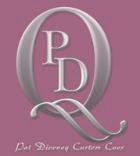













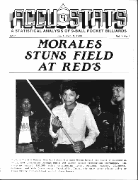
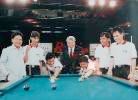
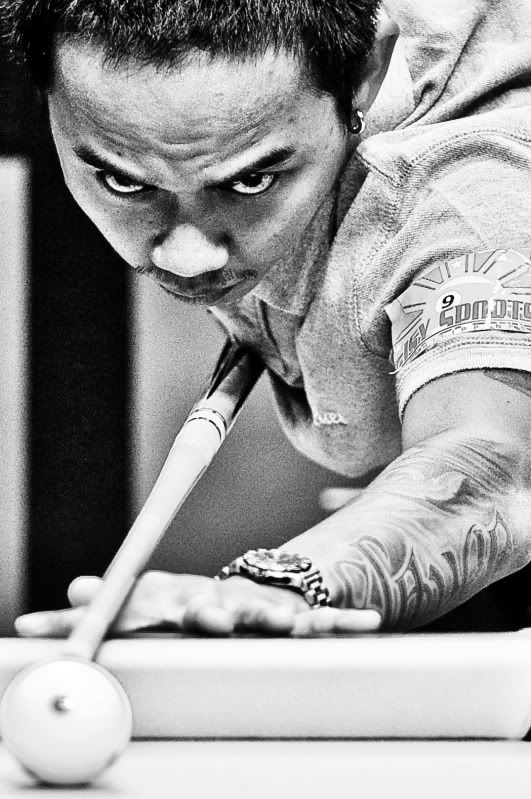
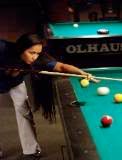
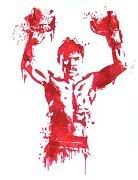





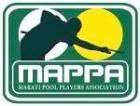
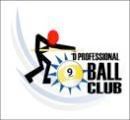
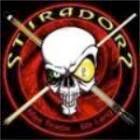
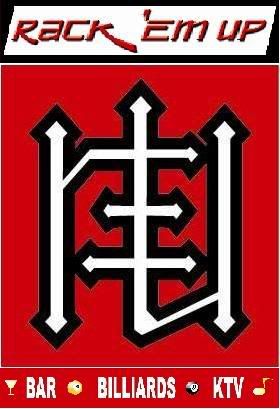



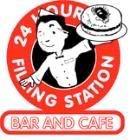
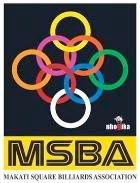
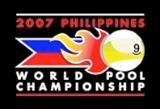
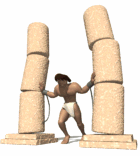
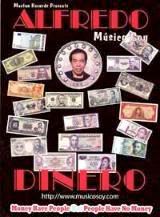
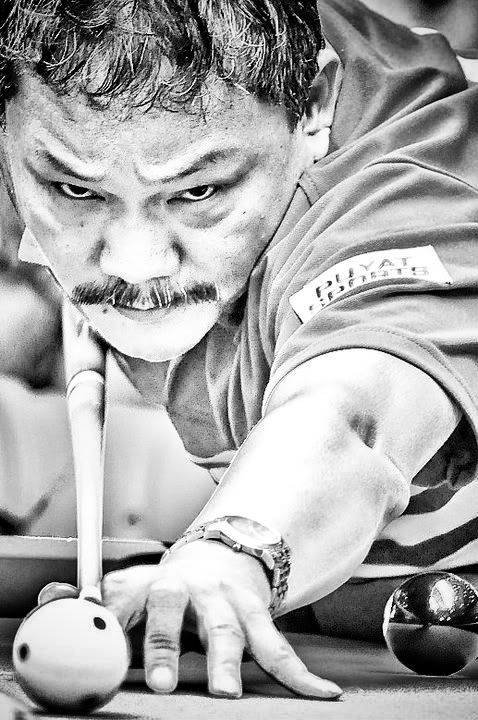





0 comments:
Post a Comment